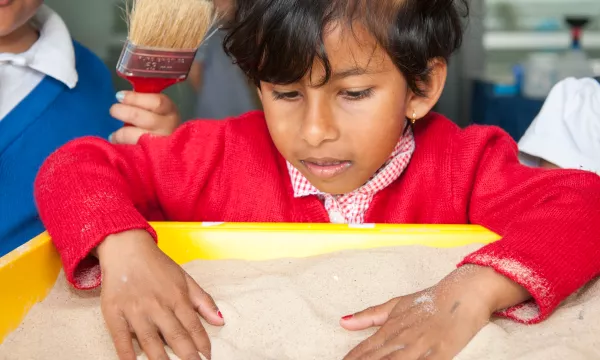
Fossil Finders
Discover prehistoric worlds through playful and imaginative games and activities.
Recommended for: EYFS | KS1 (5-7) | KS2 (7-11)
Partially accessible
Workshop

Discover prehistoric worlds through playful and imaginative games and activities.
Partially accessible
Workshop